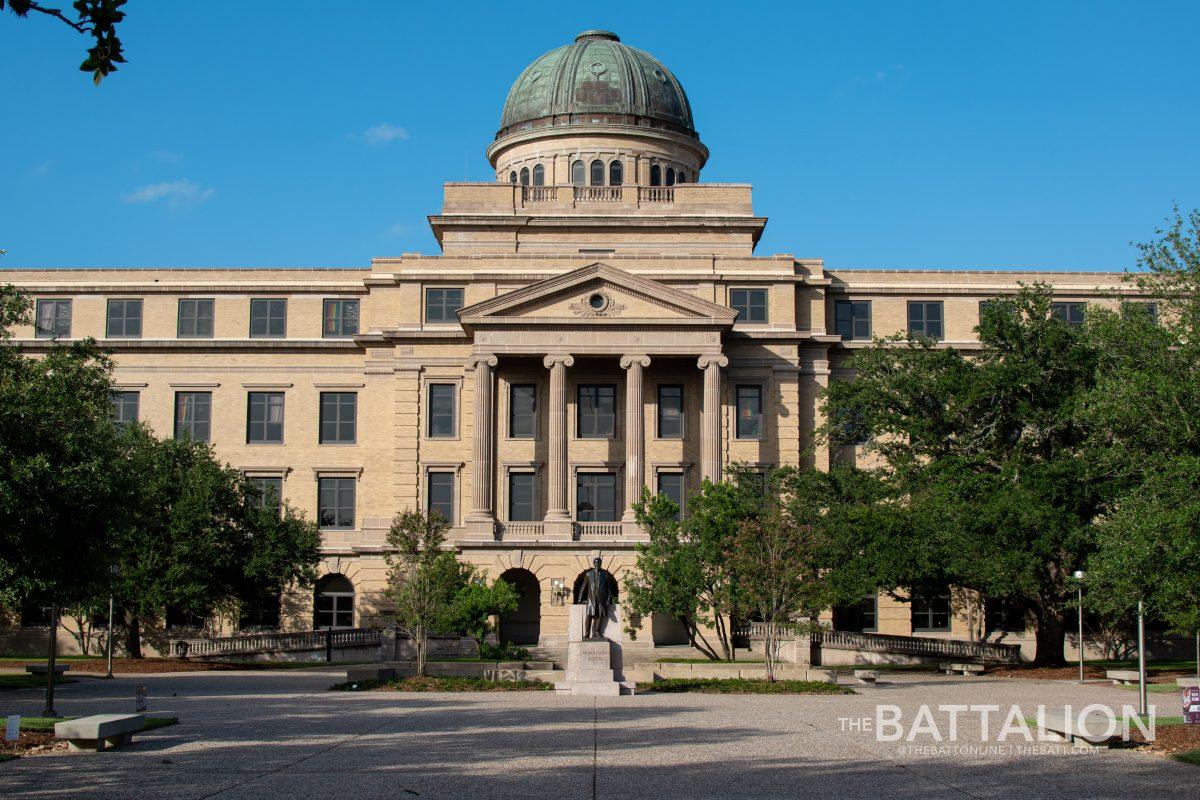The Student Senate held a meeting this Wednesday, Sept. 22, and discussed S.R. 74-12, a resolution concerning Texas A&M releasing a land acknowledgement to the Native Americans and Indigenous people who lived on the land the university sits on.
This resolution was championed by Sen. Kirk Niekamp, public health senior and member of the Health Science Center Caucus.
“A land acknowledgement statement is a statement that recognizes the Indigenous people who have been dispossessed from their homelands and territories upon which an institution of public education was built and currently occupies and operates in,” Niekamp said. “Texas A&M was founded on land expropriated from seven Native American and Indigenous tribes as a direct result of the 1862 Morrill Land Grant Act,” Niekamp said.
Many of the other universities that received their land from this same act have issued land acknowledgements, including the University of Alaska Fairbanks and Virginia Tech. However, A&M has never issued such a statement. Only the departments of Sociology and English at A&M have issued individual land acknowledgments.
“The two purposes of this [acknowledgement] is to appreciate cultural, religious and spiritual diversity as part of Texas A&M University … and to keep acknowledging where we come from, how our institution got here and what our land means to people that are of Native American and Indigenous descent,” Niekamp said.
The resolution was also authored by George Hass, environmental design senior and secretary of the Native American and Indigenous Student Organization. During debate, Hass said Indigenous people make up 1.04 percent of the Texas population — at A&M, they make up less than 0.3 percent.
“This group is two times smaller than the College of Dentistry, five times smaller than the College of Geosciences and 105 times smaller than the College of Engineering,” Hass said.
This resolution is just step one in a long plan Niekamp has to help bring Native American and Indigenous representation to A&M, he said. Niekamp also said he wants to create a Native American and Indigenous Cultural Council and create resources for Indigenous students on campus and online.
“This moves to create an environment for Native American students and Indigenous students to feel welcome at A&M and hopefully allowing Texas A&M to come at some point to parallel the 1 percent of Native American and Indigenous people that are at the state level,” Hass said.
During debate, Sen. John Carter Teague, agriculture leadership and development senior and member of the College of Agriculture and Life Science Coalition, argued the resolution needed to be sent back to committee over the language used in the text and the accusation that A&M is racist.
“I have no doubt that our ancestors have done bad things. … However, this insinuation that our university today is racist, is prejudiced and is somehow against the success of the Native American people because they said, ‘No, you don’t have enough students [to form an Indigenous People Council],’ is disgusting,” Teague said.
Others criticized the resolution for being vague calls to action with no end goal in sight. Sen. Graham Wolfe, political science sophomore and member of the College of Liberal Arts Caucus, said this bill offers the university administration no specifics on what the student body thinks.
“While vague calls to action are helpful in a limited capacity, there actually needs to be an actual message made,” Wolfe said. “Right now, this is a motion saying, ‘I think you need to say something about Indigenous People.’”
Supporters of the resolution argued the resolution is clear in it’s language and that it represents the sentiments of the student body. Sen. Kristina Samuel, biology junior and member of the Off Campus Caucus, said this is something the Student Senate is supposed to do.
“I find it very interesting that when we’re talking about Indigenous voices and Indigenous people and taking responsibility and acknowledging certain parts the university may have played in that history, I think that it’s interesting that there’s pushback for this specific topic,” Samuel said.
International studies senior and chair of Community Relations Alexia Hernandez argued in support of the resolution, saying it could be the catalyst for bettering the experiences of Indigenous Aggies. While some criticized the bill for making changes that would not affect many students, Hernandez said this resolution is needed because there are so few Indigenous students at A&M.
“What matters is that Indigenous students are underrepresented in our community and are not provided many resources or representation,” Hernandez said. “And something like this could be the start of bringing those students onto campus.”
After almost an hour of debate and not passing on a first round of a voice vote, the resolution ultimately passed 26-20. Although, its resolution passing does not mean that A&M will issue a land acknowledgement. Niekamp said this resolution just tells the administration this is something that the Student Senate and student body wants and advises them on releasing a statement.
During Wednesday’s meeting Student Senate also approved their new budget, debated a new COVID-19 resolution that will come up again next session and unanimously passed a number of resolutions dealing with student-athlete mental health, National Suicide Awareness month and student voter registration.









